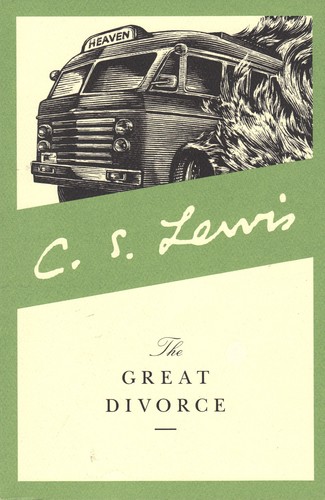


The Refrigerium describes a brief respite from Hell, where the departed are allowed a day in Heaven. Lewis accomplishes this through the idea of the Refrigerium, an idea propagated in a sermon by the English clergyman Jeremy Taylor. ∞vil can be undone, but it cannot develop into good. Īt the centre of The Great Divorce is the idea of a second chance, that those in Hell (or Purgatory, depending on their life choices) are given an opportunity to reject the wrong path, and return to the correct one. This does not mean that those who chose the wrong roads inevitably perish, but to be put back on the right path requires finding ones errors and correcting them. He argues we live in a world where all roads do not eventually lead to a common destination, a centre if you will, where some degree of good coexists with a tinge of evil instead, all roads diverge, leading to distinct destinations of good or evilwhere good and evil continually diverge, grow farther and farther apart: Good, as it ripens, becomes continually more different not only from evil but from other good, that is, where Good is definitively and categorically divorced from Evilwhere Heaven is divorced from Hell. Lewis declines to launch a full frontal attack on Blakes ideas–he isnt even convinced that he knew what Blake meant - but he does take issue with the idea that there may be a direct path between carnal desire and the spiritual, and by extension, between Heaven and Hell–that there is a way by which both alternatives can somehow be reconciled without a rejection of past sinful behavior, where mere development or adjustment or refinement will somehow turn evil into good without being called on for a final and total rejection of anything we should like to retain. Lewis categorically rejects these ideas. He says, Man has no Body distinct from his Soul Energy is the only life, and is from the Body.


According to the British Library, in The Marriage of Heaven and Hell, Blake develops the idea that the sensual world can lead to the spiritual, and that the repression of desire destroys the spirit. Blake, a celebrated artist and poet, supported the idea of spirituality, and was a fierce critic of organized religion. Lewis presents his allegory as a kind of counterpoint to William Blakes The Marriage of Heaven and Hell.


 0 kommentar(er)
0 kommentar(er)
